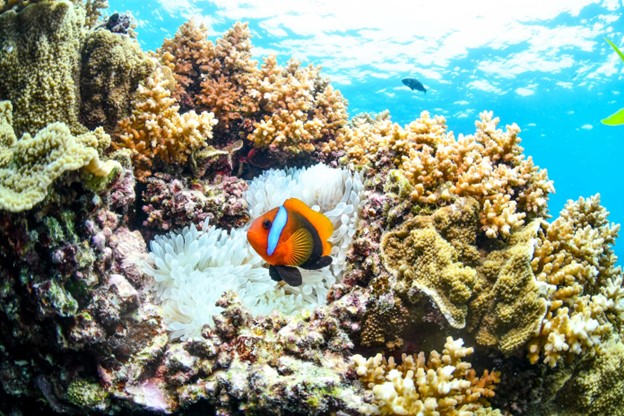
The health of the world’s oceans is critical to the well-being of our planet. Marine ecosystems, from vibrant coral reefs to expansive coastal waters, play an essential role in maintaining biodiversity, regulating climate, and supporting human livelihoods. In Australia, with its rich marine environments like the Great Barrier Reef, the urgency for marine conservation is particularly pressing. Non-profit organizations across the country are at the forefront of this effort, working to protect and restore these ecosystems through a range of initiatives. While the need for action is evident, securing funding to support marine conservation projects remains a challenge. Thankfully, there are various grant programs available to non-profits that are dedicated to safeguarding the ocean.
Whether the focus is on coral reef restoration, sustainable fishing practices, or combating ocean pollution, organizations have opportunities to access much-needed financial support. Grants Assist reviews funding options available to these non-profits and highlights how they can maximize their chances of success.
The Importance of Marine Conservation in Australia
Australia is home to some of the world’s most diverse marine ecosystems. The Great Barrier Reef, one of the most iconic natural wonders, is not only a vibrant habitat for thousands of species but also a major driver of tourism and local economies. However, these ecosystems face significant threats, including climate change, ocean acidification, overfishing, and pollution. Coral bleaching, caused by rising sea temperatures, has devastated large portions of the Great Barrier Reef, while unsustainable fishing practices have led to a decline in marine populations. Pollution, particularly plastic waste, poses another challenge as it clogs waterways and endangers marine life. In response, non-profit organizations play a pivotal role in addressing these threats by implementing conservation projects and raising awareness about the importance of ocean health. Their efforts range from hands-on initiatives, such as coral transplanting and beach clean-ups, to broader advocacy for sustainable practices and policy change.
Funding Opportunities for Marine Conservation Projects
For non-profits involved in marine conservation, securing grants is vital to carrying out their work. Grants provide the necessary resources for organizations to expand their impact, whether through research, restoration projects, or community engagement programs. In Australia, there are numerous grant programs available, both from government sources and private foundations, designed to support environmental and marine conservation efforts.
While government grants are a significant source of funding, non-profits must remain diligent about adhering to the application requirements and guidelines. These grants often prioritize projects with a clear focus on long-term environmental sustainability and community involvement. Non-profits that can demonstrate how their work contributes to the broader goals of marine conservation, such as restoring damaged coral reefs or promoting sustainable fisheries, are well-positioned to secure funding.
Private foundations and philanthropic organizations also play an important role in supporting marine conservation. These grants are often more flexible than government grants, offering non-profits greater autonomy in how they design and implement their projects. Foundations focused on environmental issues may provide funding for innovative solutions to marine conservation challenges, such as developing new technologies for monitoring ocean health or fostering collaborations between scientists and local communities.
Best Practices for Securing Grants
To increase their chances of receiving grant funding, non-profits should adopt several best practices when developing their applications. First, it is crucial to clearly articulate the organization’s mission and how the proposed project aligns with the goals of the grant provider. Whether applying for government funding or a private foundation grant, the application should demonstrate a well-defined strategy for achieving measurable conservation outcomes. This might include outlining specific activities, such as coral planting or creating educational programs about sustainable fishing, as well as providing a timeline for the project’s completion.
In addition, non-profits should emphasize the broader impact of their work, both on the environment and on the communities that depend on marine ecosystems. Many grant providers are looking for projects that not only address immediate conservation needs but also contribute to long-term environmental sustainability. For example, a project that involves local fishers in sustainable fishing practices might be more appealing to a grant provider than one focused solely on scientific research. By involving local communities in conservation efforts, non-profits can demonstrate a holistic approach that fosters both ecological and social benefits.
Another key factor in successful grant applications is the ability to collaborate with other organizations or stakeholders. Grant providers often look for projects that build partnerships between non-profits, government agencies, academic institutions, and local communities. These partnerships can strengthen the credibility of the project and ensure that it has the support needed to succeed. For example, a non-profit working to restore a coral reef might collaborate with a university to conduct scientific monitoring of the reef’s recovery, or with a local tourism organization to promote eco-friendly practices.
The Future of Marine Conservation in Australia
As the threats facing Australia’s marine ecosystems continue to evolve, non-profits must remain adaptable and forward-thinking in their conservation efforts. Securing grant funding is just one piece of the puzzle, but it is an essential component that allows organizations to scale their work and make a tangible impact. By staying informed about available grants and adopting best practices in their applications, non-profits can increase their chances of success and continue their important work of protecting Australia’s oceans.
The future of marine conservation in Australia will depend not only on the efforts of non-profits but also on the continued support of grant providers and the broader public. As awareness of the importance of ocean health grows, there is hope that more resources will be directed toward preserving these vital ecosystems. Through sustained collaboration, innovation, and determination, non-profits can play a leading role in ensuring that Australia’s oceans remain healthy and vibrant for generations to come.
How expert services can help you secure funding for sustainable ocean economies
Expert services can assist in navigating opportunities by providing access to a comprehensive suite of resources. A centralized portal offers a vast database with over 1,000 grants from federal, state, and local governments, along with philanthropic organizations and other institutions. This platform provides up-to-date information on grants, subsidies, incentives, scholarships, rebates, and more. Additionally, expert grant writing and consulting services can support businesses and non-profits through the entire grant application and submission process, enhancing the chances of securing essential funding.



